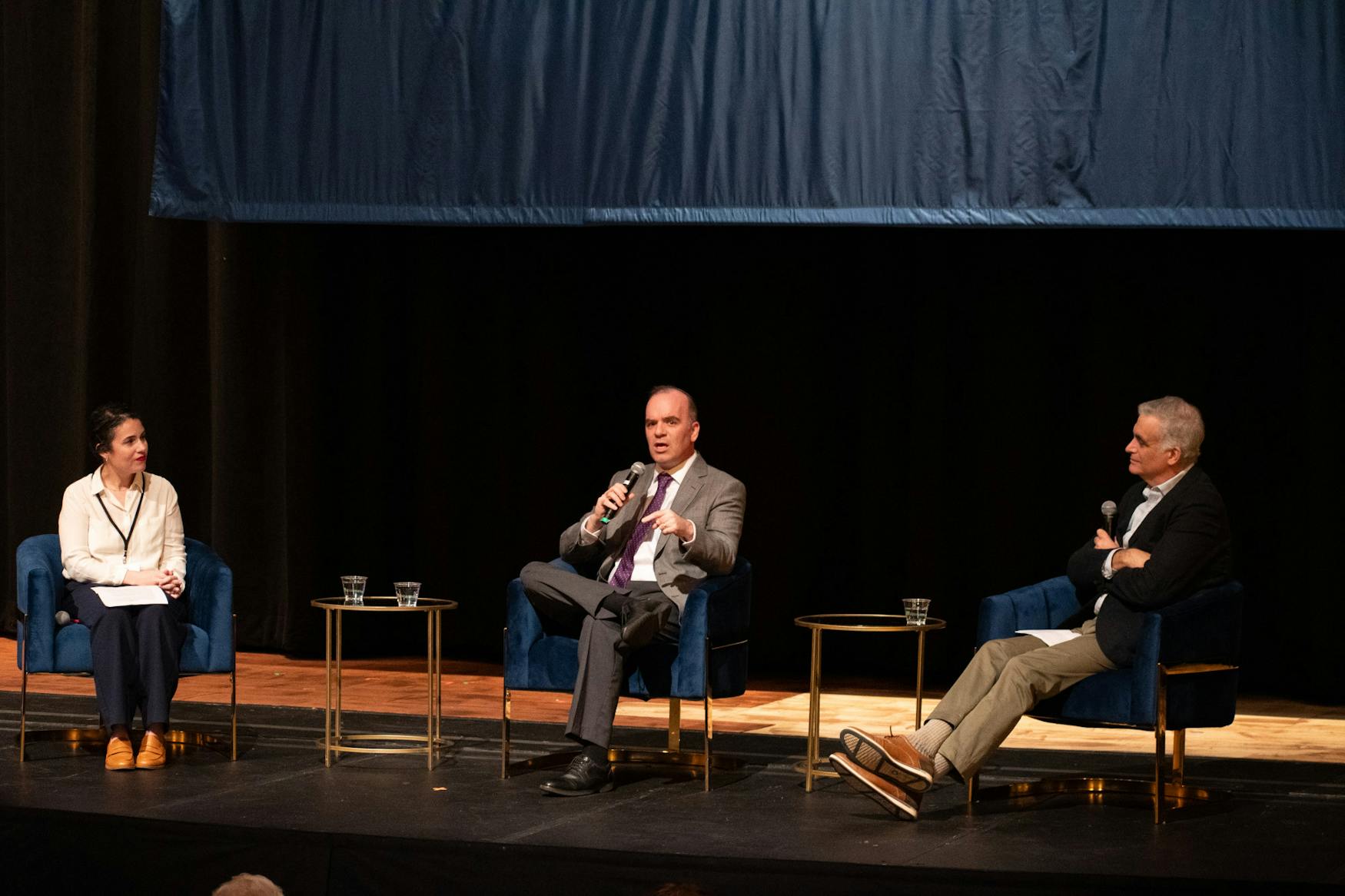In conversation with Yoni Appelbaum: how laws can create immobility
The Deputy Executive Editor of The Atlantic discussed housing, social mobility and equality in America.
On Oct. 24, Deputy Executive Editor of The Atlantic Yoni Appelbaum M.A. ’10 Ph.D. ’14 was welcomed back by the University for Alumni Weekend to discuss his new book, “Stuck: How the Privileged and the Propertied Broke the Engine of American Opportunity.” His book delves into the importance of mobility in the American definition of equality. He argued that, increasingly, zoning laws and housing scarcity restrict individuals to one area, limiting social mobility and exacerbating inequality.
The conversation was guided by Prof. Neil Swidey (JOUR) and Prof. Sarah Mayorga (SOC) and explored how Appelbaum conducted research for the project and how it was received by the public. When asked about how zoning has changed perception of social and economic mobility Appelbaum said, “the right to move comes with the ability to have the right to stay.”
Appelbaum also emphasized the need for well-balanced policies to restore mobility so that housing laws do not become exclusionary or based solely on social status. He noted that individuals in Europe were born with an identity that did not change. In contrast, Americans created a new right, allowing individuals to decide where they wished to live. This right was instrumental, as housing had always been seen as a measure of social status, which had previously been unchanging. Appelbaum added that mobility matters for equality because certain areas have better economic opportunities; therefore, if individuals are restricted to one area, their economic opportunities are limited.
Appelbaum explained that America was historically unique in that people were not bound to the places they grew up and it was not uncommon to move frequently. However, the creation of zoning legislation complicated that mobility, creating “racist and negative effects.” For instance, he discussed how Chinese immigrants, who came to the United States seeking gold, faced hostility when opening laundry shops in white neighborhoods, as these shops signaled the presence of a Chinese community. Chinese Americans were restricted to Chinatown by white Americans through a series of constitutional laws to ensure they would not intermingle with the white population.
Many have attempted to mend the impacts of zoning over the years. “You can't judge public policy by intent, you have to judge it by impact,” said Appelbaum. People need to be able to challenge governmental policies through legal changes that hold the government accountable when it does not uphold citizens’ interests. He also noted that individuals with the least influence and power often bear the consequences of housing development. While the laws were originally designed to protect the vulnerable, they now allow “prescriptive restrictions,” rules dictating where individuals can live based on standards such as income.
He observed that this reflects the mindset of the older generation, while younger generations see dense public family development as a way to safeguard the environment. Although mobility was previously part of the American dream, newer generations have other pressing concerns, such as environmental activism. Appelbaum stated that those who moved from their original areas performed better economically, became more optimistic about the future and were more involved in their communities and personal success. Those who do not move, he noted, tend to view life as a “zero-sum game” and become suspicious of the world around them.
He described the tenement as a “Darwinian trap,” where the media portrayed that only the worst of humanity could survive. He explained that families live there and that the media often selects the worst tenements to create propaganda about inhabitable properties despite the fact that the U.S. government generally reports that immigrant housing looks clean and secure. People live in tenements to seek a better life and be closer to their jobs, which allows children to access education and supports immigrant communities. Therefore, he emphasized, common narratives about tenements are misleading.
“What you don’t see is the silent change that happens if you preserve a neighborhood of 19th-century townhouses. The lived residential density is going to be about a third of what they originally housed,” stated Appelbaum. He explained that shops often close because there are not enough people on the street to justify keeping them open. He identified two choices in public policy: Preserve the physical form of a community or allow new changes and preserve its memory.
“Housing used to be a commodity,” he said. Viewing housing as a right is uncomfortable, he argued, because those who have housing may claim it as inherent, reflecting an 18th-century world with no mobility. “Housing is not an end goal. It is a means to an end,” he said. This perspective asks people to accept uncomfortable changes in the community so that it can improve. The talk concluded with a Q&A session, where he advocated lowering housing costs so that everyone can receive support regardless of income. Appelbaum’s panel emphasized that preserving housing mobility is important not only for individual opportunity but also for a more equitable society.



Please note All comments are eligible for publication in The Justice.